
3 minute read
SHOWING OFF THE SOUTH WEST’S GREEN TECH INTERNATIONALLY

One of the UK’s most successful pioneers in renewable fuels, an award-winning company which is rethinking and redesigning the way building materials are produced and an agri-incubator focussed on the future of farming and food systems showcased their technology and discussed future collaboration with the Ambassador of Estonia to the UK and Northern Ireland, Mr Viljar Lubi and his Trade Adviser Mr Andreas Pant.
The visit, organised by Estonia's honorary consul John Workman, who is also Senior Partner at Cheltenham law firm BPE Solicitors, was arranged to help create new links between South West businesses and one of Europe’s most modern and enterprising economies.
Farm491, based at the Royal Agricultural University in Cirencester, is a leading agri technology incubator and innovation space. Based and owned by the university, it works with entrepreneurs through all their stages of growth, leveraging its extensive network of academic, industry and farming contacts and experts based at the university.
Kenneth Obayuwana, who is studying for a Masters in Sustainable Agriculture and Food Security at the university, presented his strategy to use agriculture to end hunger, create wealth and jobs and drive equitable economic growth in Africa to help lift millions out of poverty.
James Clark also presented his new business, Circular Sea. According to
James, 97 per cent of the world’s fisheries are overfished or fished at unsustainable levels. Circular Sea aims to ethically and sustainably produce healthy seafood and redeploy what is now considered sea waste as an agricultural resource.
The Estonian delegation also heard from Vice Chancellor Peter McCa ery and Chief Operating O cer Graham Pollard about the university’s plan for a £100 million innovation village to support industry, food producers, farmers and landowners to sustainably develop healthy land, nature and food production.
From salmon farming to green fuels
A short trip across the Cotswolds took the Ambassador to Berkeley, the home of Green Fuels, a pioneer in renewable fuels.
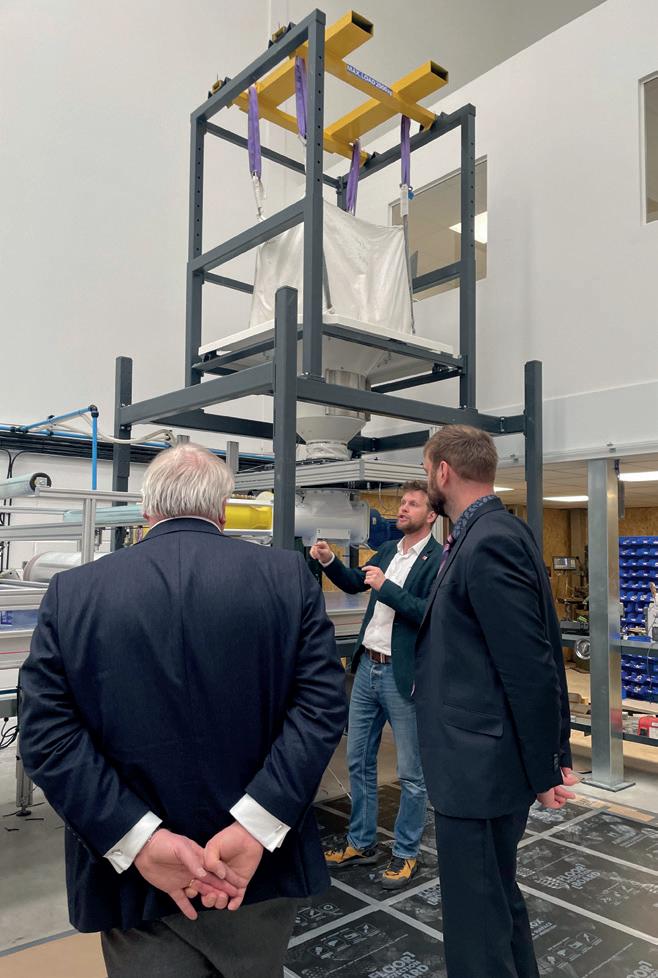
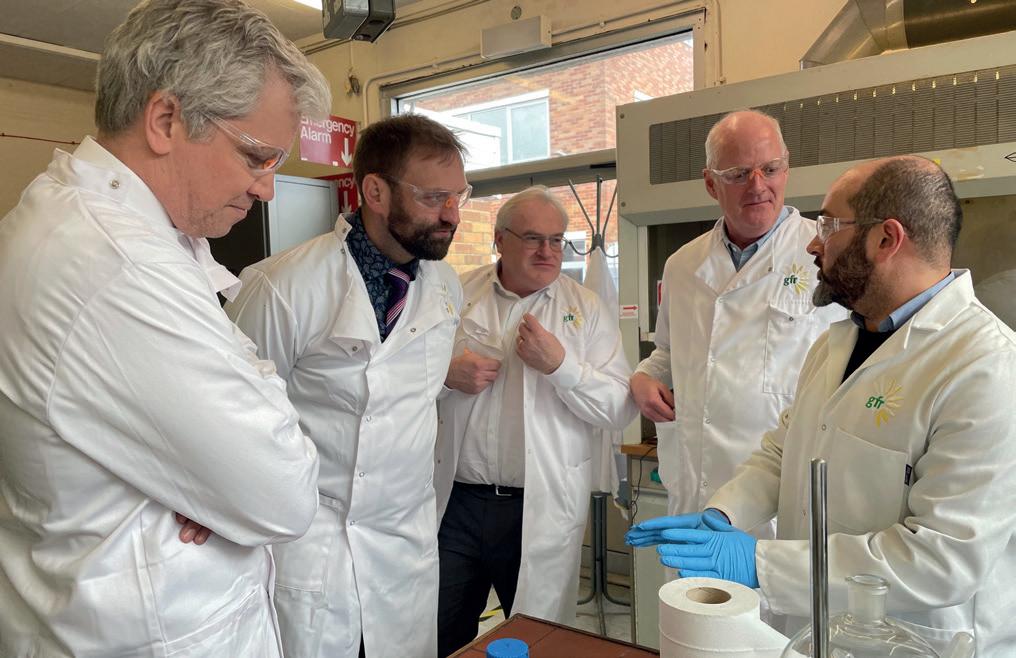
The Estonian delegation was hosted by UK Managing Director Jason AskeyWood, Business Development Director Julian Beach and Director of Research Sergio Lima.
Founded in 2003, Green Fuels has supplied biofuel equipment, with a total capacity of more than 420 million litres a year, to customers in more than 80 countries. Its researchers have worked on projects from fish-farming to jet fuel.
This is a tech-led company, and since 2014 has had a dedicated R&D division to explore new and emerging areas of sustainable fuels. Green Fuels Research has attracted $16 million in direct and indirect research funding to date, with university-level R&D facilities in Berkeley, Gloucestershire and a talented team of researchers and engineers.
Its priority is combatting the e ects of transport on climate change worldwide. The Green Fuels Group is now undergoing a transformation into a global sustainable fuel producer in the pivotal sectors of sustainable aviation and marine fuels and in high-growth emerging markets for sustainable road fuel.
Helping the UK achieve net zero ambitions through construction innovation
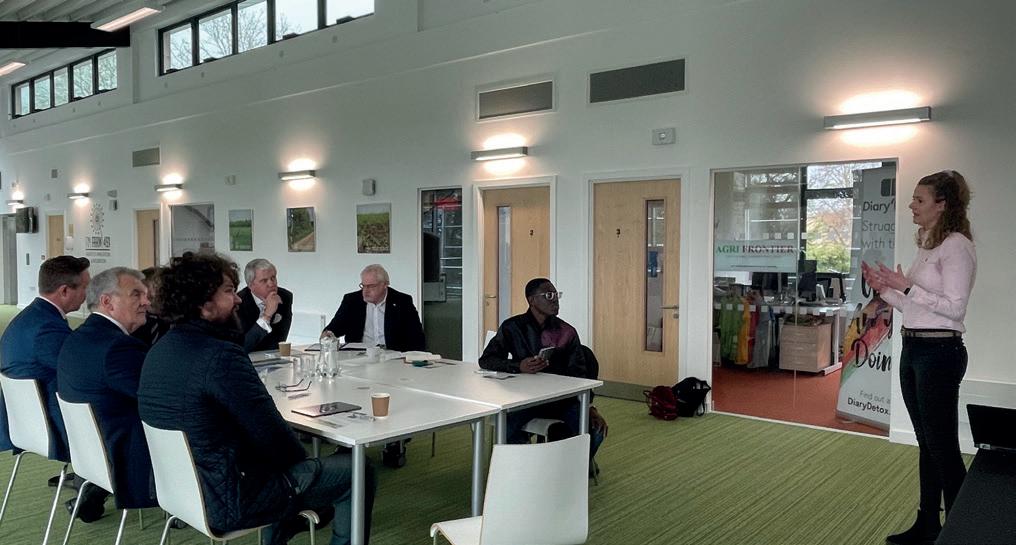
The final visit of the trip was to Adaptavate in Bristol. According to the UK Green Building Council, the country’s built environment is responsible for around 25 per cent of total UK greenhouse gas emissions. If vehicle emissions which relate to the construction sector are included, that rises to 42 per cent.
To achieve the UK’s net zero ambitions, the construction sector must move away from traditional construction methods, where priority is often given to the cheapest solution, to one where new construction projects are based on a building’s “whole- is Adaptavate, an award-winning company rethinking the way building materials are produced, used and disposed of.
The Estonian delegation heard from Founder and Managing Director Tom Robinson how Adaptavate is designing low-carbon construction products for healthy buildings and inhabitants, which help ensure the longevity of the world’s fragile ecosystem while surpassing the performance of market-leading products. By taking an innovative approach to the design and manufacture of construction products it is working to clean up and breathe fresh air into this traditionally conservative sector. It aims to produce its progressive materials at the scale needed to have a significant positive impact on the health of people and planet.
Adaptavate has developed innovative construction materials including Breathaboard, a carbon-absorbing plasterboard made from lime and food crop by-products including oil seed rape and hemp, sandwiched between two layers of recycled paper; and Breathaplasta, a high performance environmentally-friendly alternative to cement and gypsum plasters. Mixed with water and applied using conventional methods, this bio-composite product also helps to regulate moisture and improve insulation.
Honorary Consul John Workman said: “The South West is blessed with an abundance of innovative, sustainably-focussed and technologically inventive companies and it was a pleasure to be able to showcase these to our Estonian visitors.”
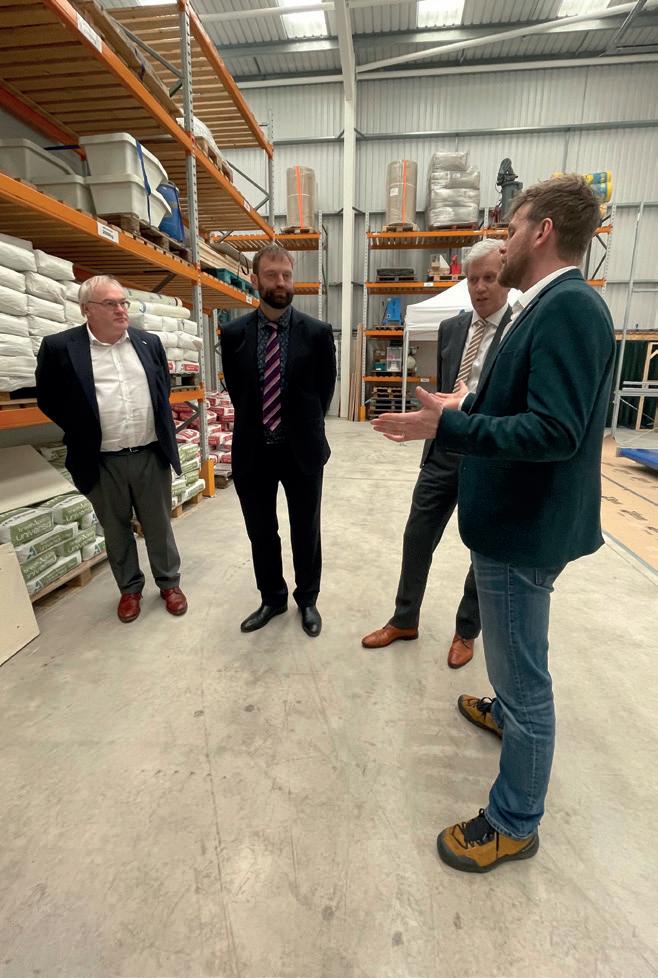
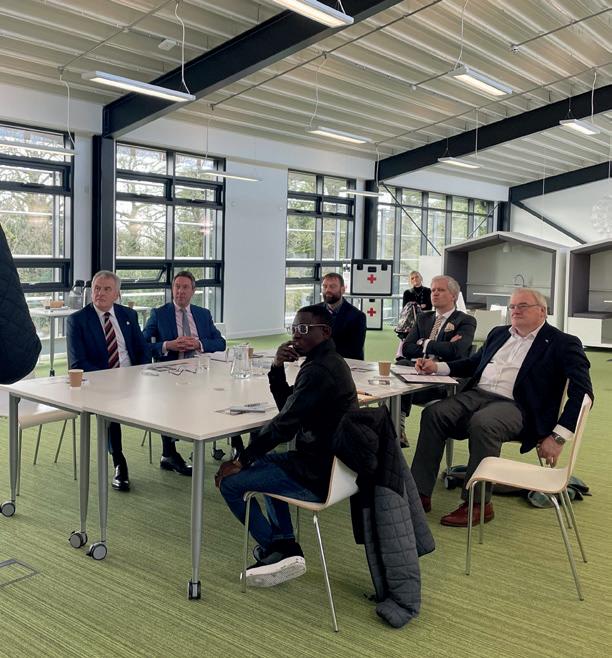
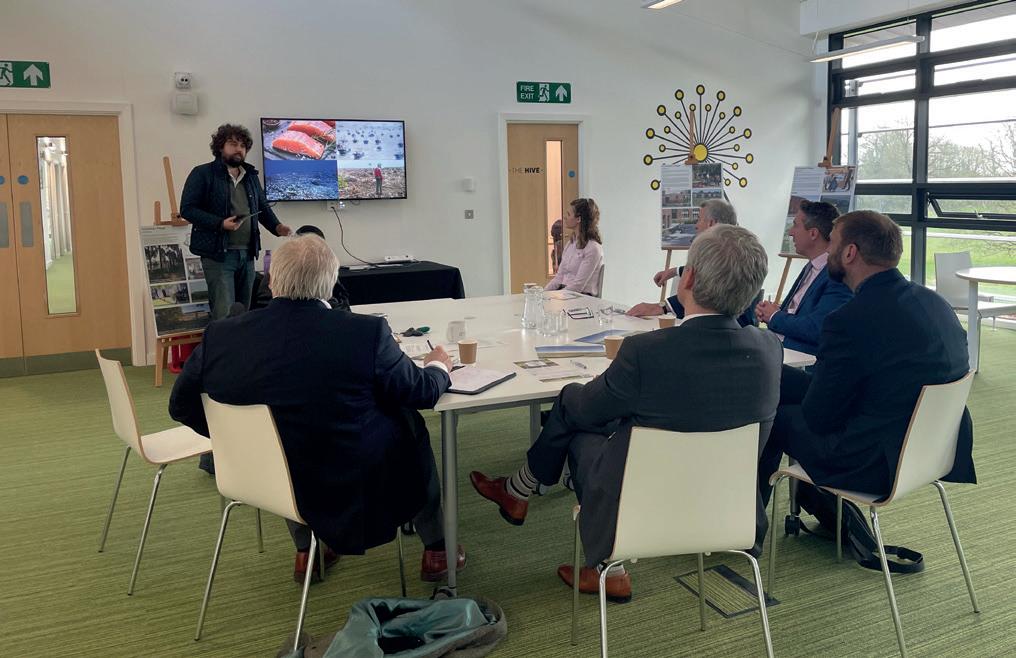
The Ambassador added: “We met so many interesting tech people from di erent areas. Success can only be achieved through collaboration as well coordinated supply chains.”













